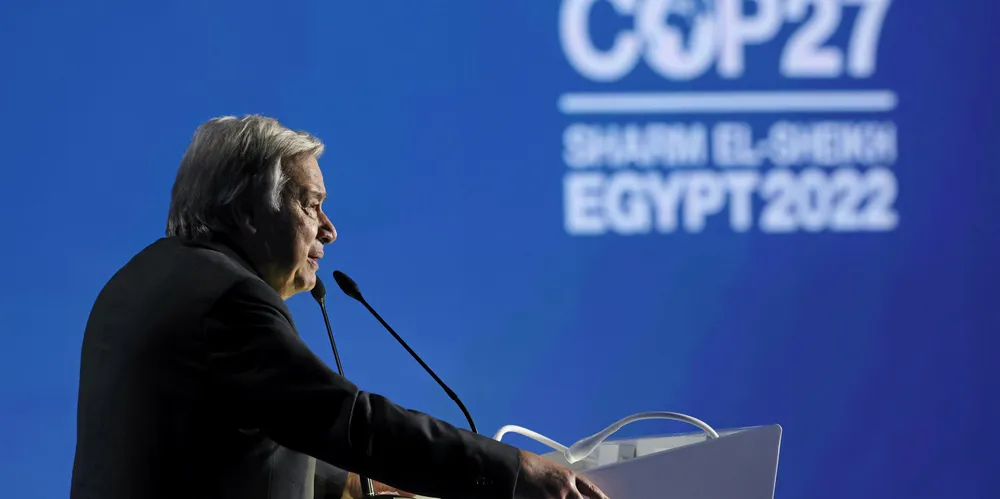COP27 | A true 'just transition' will be the keystone to climate salvation
The more equitable world envisaged as the natural outcome of the energy transition still looks a long way off, but COP27 has a slim chance of changing the direction of travel on the current 'road to climate hell'

<b>Focus your mind: get the insight you need with the Recharge Agenda</b>
The global energy transition is gathering momentum – and the accompanying news-stream becoming an information deluge. Separate the green giants from the greenwash and the hard facts from the click-bait headlines with Recharge Agenda, our curation of the market-making events of the week, distilled down into one quick-read newsletter. Sign up here for free
Revealingly, on the eve of COP27, as the press releases circulated from government and industry agencies restating that the world is not moving at anything like the pace necessary to avert catastrophic global heating by shifting from a fossil-based energy system to one run on renewables, it is the ‘just transition’ that threatened to derail discussions in Sharm El-Sheikh.
This despite the fact that the cataclysmic impacts increasingly suffered by developing nations — most vulnerable to climate change though almost entirely innocent of contributing to its causes – lie in wait for the rest of civilisation in the decades to come.
Few in global politics or the energy industry could hand-on-heart deny renewables – “the backbone of the energy transition and a viable climate solution”, as the International Renewable Energy Agency (Irena) succinctly phrased it in its communiqué – is the best means of saving us from ourselves by slowing global heating. But, as Irena underscored, of the 183 Paris Agreement signatory nations, a mere12 had committed to a hard percentage of renewables in their overall energy mixes.
A year after the Glasgow climate pact to raise 2030 target pledges, Irena calculations ahead of COP27 – where representatives from 196 nations, 45,000 people and 120 world leaders are expected to gather – show countries are together planning for 5.4TW of renewable power plant capacity by 2030, exactly half of the 10.8TW needed to meet the agency’s net-zero scenario of keeping global temperatures to within 1.5°C of preindustrial levels.
To reach progressive end-of-decade targets, countries would need to wire in 2.3TW of renewable plant, which translates to 259GW annually in the next nine years – actually below the additions for 2020 and 2021 – when 261GW was commissioned in each of the two 12-month periods.
The means of creating a just transition lies in the reality that clean power production so far targeted by 2030 remains concentrated in Asia – half of all new renewable capacity – followed by Europe and North America, but the Middle East and North Africa account for a minuscule 3% of global deployment targets and Sub-Saharan Africa 2%, despite their wind- and sun-rich resources.
There is no diminishing UN secretary general António Guterres’ intonement that a deepening gulf between the developed and developing world must be bridged to get us off the “road to climate hell”.
Negotiations on inclusion of “loss and damage” – climate justice, in other words – in discussions over the coming fortnight at COP ran into the early hours of the lead-off day, stalled, then got across the line before the first conference sessions began. A hope, if slender, glimmers on.
(Copyright)